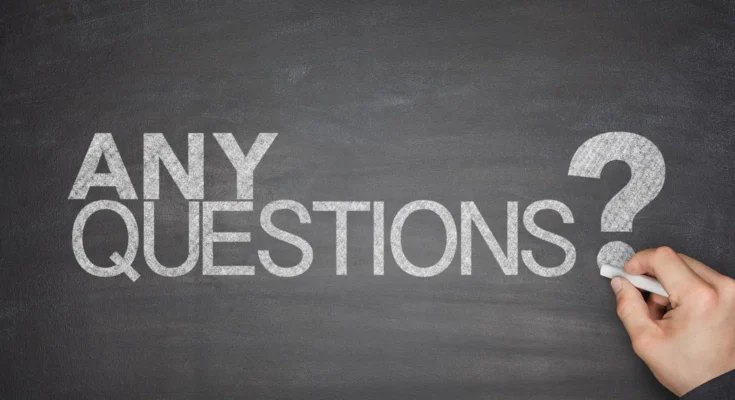The following questions are the most frequently asked insurance questions that I compiled from the comments on Zhihu and public accounts. I plan to use two articles to give unified responses to these questions that everyone is very concerned about.
There Are Following Insurance Related Questions
Is it really useful to buy insurance?
This issue is the most heated and heated discussion in the comment area. The comment section is also very interesting. Insurance newbies often conclude with indignation that insurance is of no use at all. As for those voices that I find useful, according to my observation, most of them are people who have gone through claims settlement after family changes.
Insurance is a lucky contract. What you buy is just a probability and the services it provides also have a lag. Only when you are out of danger can you realize its importance? When you buy it, it is just a contract. Insurance is buying a probability that has been calculated long ago, just like buying a lottery ticket. It will be useful only if you win. If you don’t win, you will spend money in vain. It is difficult for people to actively buy this kind of intangible and non-desired goods.
This is a permanent injury to the insurance industry.
When people are going well, they often forget to leave a way out for themselves . In my eyes, insurance is such a fallback path.
Many people do not realize that insurance is actually a financial management method, but it is an extremely conservative and negative financial management method. Compared with the income from stocks, funds, and even bank deposits that can be seen with the naked eye every day, insurance is often not popular because of the hidden nature of its income.
If you draw a circle for your wealth, active financial management is a process of constantly making the circle bigger and bigger. And negative financial management is the process of guarding your circle and not letting it suddenly become smaller.
I have said this several times in previous articles. Whether it is from an actuarial perspective or a financial management perspective. I hope everyone can recognize this problem as soon as possible and don’t wait until a major family accident occurs to regret it again. Why did I have no risk awareness in the first place.
2. Why do you feel that the insurance industry is a liar industry that will not compensate you for this or that?
The reason why traditional insurance has such a bad reputation is, to a large extent, due to the brutal development of the industry that was driven by quick success and quick profit in the past two decades. To a lesser extent, it can be attributed to the uneven quality of practitioners. Silently, people’s trust in the insurance industry and the entire workforce has been destroyed for the two reasons I mentioned above.
In fact, I think that insurance transactions require the most integrity. The need for trust comes from the time difference between the promise and the fulfillment of the promise. Any sale, if the promise is good when selling, but cannot be fulfilled when it is fulfilled, it can only be a one-time sale.
In the early 1990s, after AIA introduced the agent system to China, insurance companies frantically compared themselves with the past, international competition, and banks. Insurance companies allocate huge sales tasks to various branches and even the most basic sales agents. The pressure on the basic sales units and agents is very high. In order to survive, they can only strictly implement the scale development strategy set above and have no time to consider the feelings of customers. , sales performance is the first, integrity is the nth, many agents are “laughing, drawing on paper, hanging on the wall”.
In order to be able to sell it first, they talk about it so much that there is almost nothing that insurance can’t cover. Many people are forced to buy under the agents’ persuasion, stalking, coercion and inducement.
As for the contract I bought, the agent didn’t explain clearly to us what was and wasn’t guaranteed, or the agent simply didn’t have the ability to explain it clearly to us.
Quite a number of people believed the agent’s words and thought that no matter what the illness, as long as they were sick, they could seek compensation from the insurance company. But when they actually went to settle the claim, the insurance company came to explain the matter with a contract that the agent had never shown. When I made the purchase, I was praised to the sky like never before, and when I made a claim, I was mercilessly trampled on the ground. The gap is so huge that no one can swallow this sigh of relief. The trust between insurance companies and customers has been broken down bit by bit.
Just imagine, if from the very beginning, there was a professional person who could clearly explain to us who can and cannot buy, under what circumstances we can and cannot compensate, and in the end both the buyer and the seller would follow what was agreed upon in advance. If you do things in the spirit of contract, even if in the end, you really can’t compensate, the buyer won’t feel that you were deliberately deceiving me when you sold me.
3. Do the insurances sold online and offline cover the same things?
I have written about this issue before.
There is no difference in what is insured between online and offline insurance products. The only difference between them is their sales methods. To put it simply, it is the difference between whether clothes are sold on Taobao or in a physical store.
The paper contract with black and white words has become an electronic contract; the traditional agent handing over information for claims settlement has become just a photo-taking online claim settlement.
This is more of a lifestyle change, and there is no proposition that one lifestyle is nobler than another. It’s just a matter of which lifestyle you’re used to.
Of course, at present, online insurance is much cheaper than online insurance. That’s because the past few years have been a dividend period for online insurance. Some small and medium-sized insurance companies are desperately transforming into online insurance, competing for traffic and profit. Regarding this question, why is my insurance on Alipay so cheap? Is it worth buying? (A review of the latest products in 2021 is included) I wrote it in detail, you can click in and take a look.
4. If I buy an insurance policy worth hundreds of thousands now, will it become worthless in a few decades?
Regarding this problem, I can only regretfully say that there is no solution.
No insurance product can completely protect against inflation.
In fact, when you pay for insurance today, the insurance company has already taken into account the impact of inflation. By setting a predetermined interest rate, they discount the insured amount decades from now into today’s premium.
It might be better to give an example,
We bought an insurance with a coverage of 500,000. If we were in danger in the first year, the premium we paid would actually be calculated based on the coverage of 500,000.
But if we get out of the insurance in the tenth year, although the insurance company still compensates us 500,000 yuan on the surface, the insurance company has already discounted the amount insured after ten years into our account at a predetermined interest rate of 3.5%. Premium.
This is the calculation formula: 50÷[(1+0.035)^9]=366,800
Money has a time value. That is to say, if the insurance company calculates your insured amount of 500,000 yuan today in 10 years, the premium charged to you today is calculated based on the present value of the insured amount of 366,800 yuan, not what it looks like on the surface. Up to 500,000 yuan.
In the same way, if you are out of insurance after 30 years, the actual insured amount discounted in advance in the eyes of the insurance company is:
50÷[(1+0.035)^29]=184,000
The premiums we pay are even less.
Understanding this helps us understand the following passage. We are not using today’s money to buy 500,000 insured amount that will be worthless in 30 years. We are actually paying for the inflation in 30 years. The remaining money will be protected with an insured amount of 500,000 after 30 years.
Of course, our economy has grown rapidly over the past two decades, and the real inflation rate will definitely not be lower than 3.5%. This goes back to the unsolvable problem I mentioned at the beginning.
All we can do is to dynamically adjust our policies and slowly insure ourselves again after ten years. That’s all.



